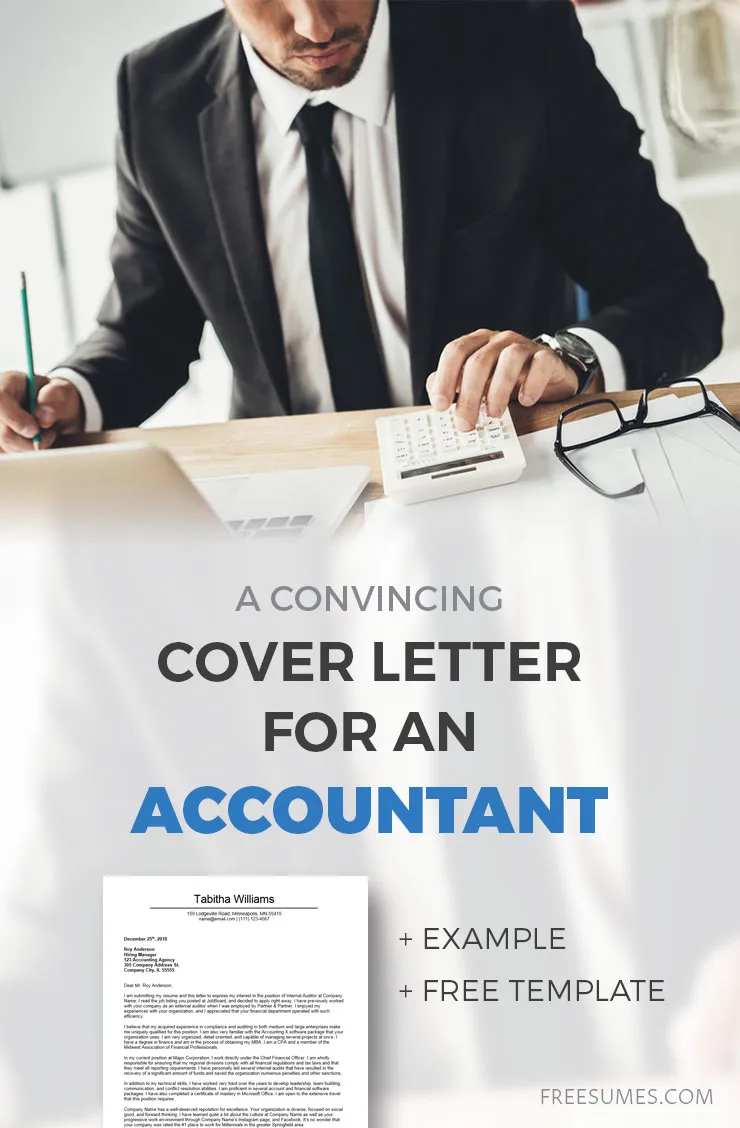Crafting Your Accounting Cover Letter
A well-crafted cover letter is your first impression on a potential employer. In the competitive field of accounting, a strong cover letter is essential to differentiate yourself and secure an interview. It serves as a powerful tool to showcase your personality, skills, and experience in a way that a resume alone cannot. Mastering the art of cover letter writing for accounting firms is a crucial step toward landing your dream job. This guide will walk you through the essential elements to create a winning cover letter that grabs the attention of hiring managers.
Understanding the Importance of a Cover Letter
Your accounting cover letter goes beyond merely repeating information from your resume. It’s an opportunity to tell your story, connect with the hiring manager, and demonstrate why you’re the perfect fit for the role and the firm. It shows your enthusiasm for the position and offers a glimpse into your professional communication skills. A cover letter also helps you clarify any gaps in your resume, address specific requirements, and highlight your unique value proposition. When properly executed, it can significantly boost your chances of getting an interview.
Highlighting Your Skills and Experience
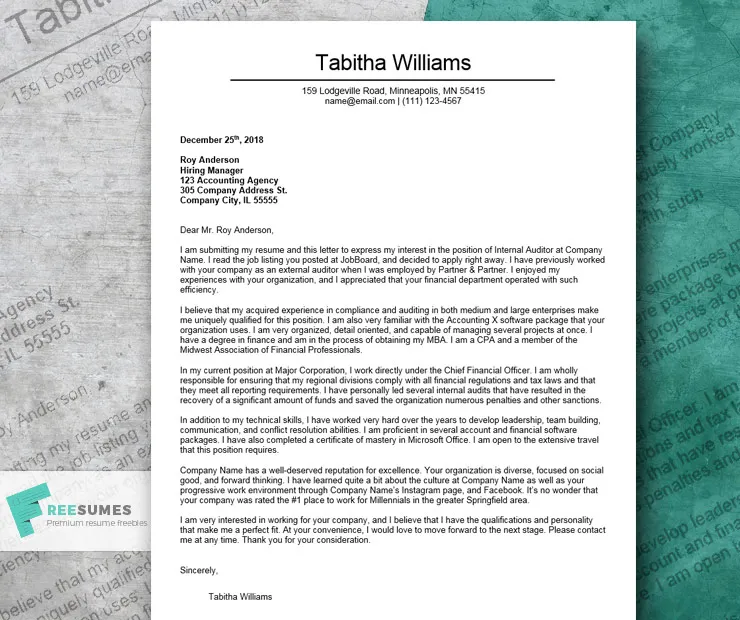
Accounting firms seek candidates with a range of technical and soft skills. Your cover letter should explicitly demonstrate these. Focus on skills such as proficiency in accounting software (e.g., QuickBooks, SAP), financial analysis, tax preparation, and auditing. Beyond technical skills, emphasize soft skills like problem-solving, attention to detail, communication, and teamwork. Provide concrete examples of how you’ve successfully utilized these skills in previous roles or academic projects. Use action verbs to describe your accomplishments, showcasing your ability to achieve results.
Researching the Accounting Firm
Before writing your cover letter, research the accounting firm you’re applying to. Understand their mission, values, and the types of clients they serve. Tailor your cover letter to reflect this understanding and highlight how your skills align with their specific needs and culture. Mention specific projects or initiatives that resonate with the firm’s values, demonstrating your genuine interest. Showing that you’ve done your homework sets you apart from generic applicants and shows a proactive approach.
Tailoring Your Cover Letter
A generic cover letter is unlikely to impress. Instead, customize your cover letter for each job application. This demonstrates your genuine interest in the specific role and the company. Tailoring shows you’ve taken the time to understand their requirements and how your skills and experiences align. Take the time to tailor your resume as well, ensuring all information is accurate and easy to read.
Analyzing the Job Description
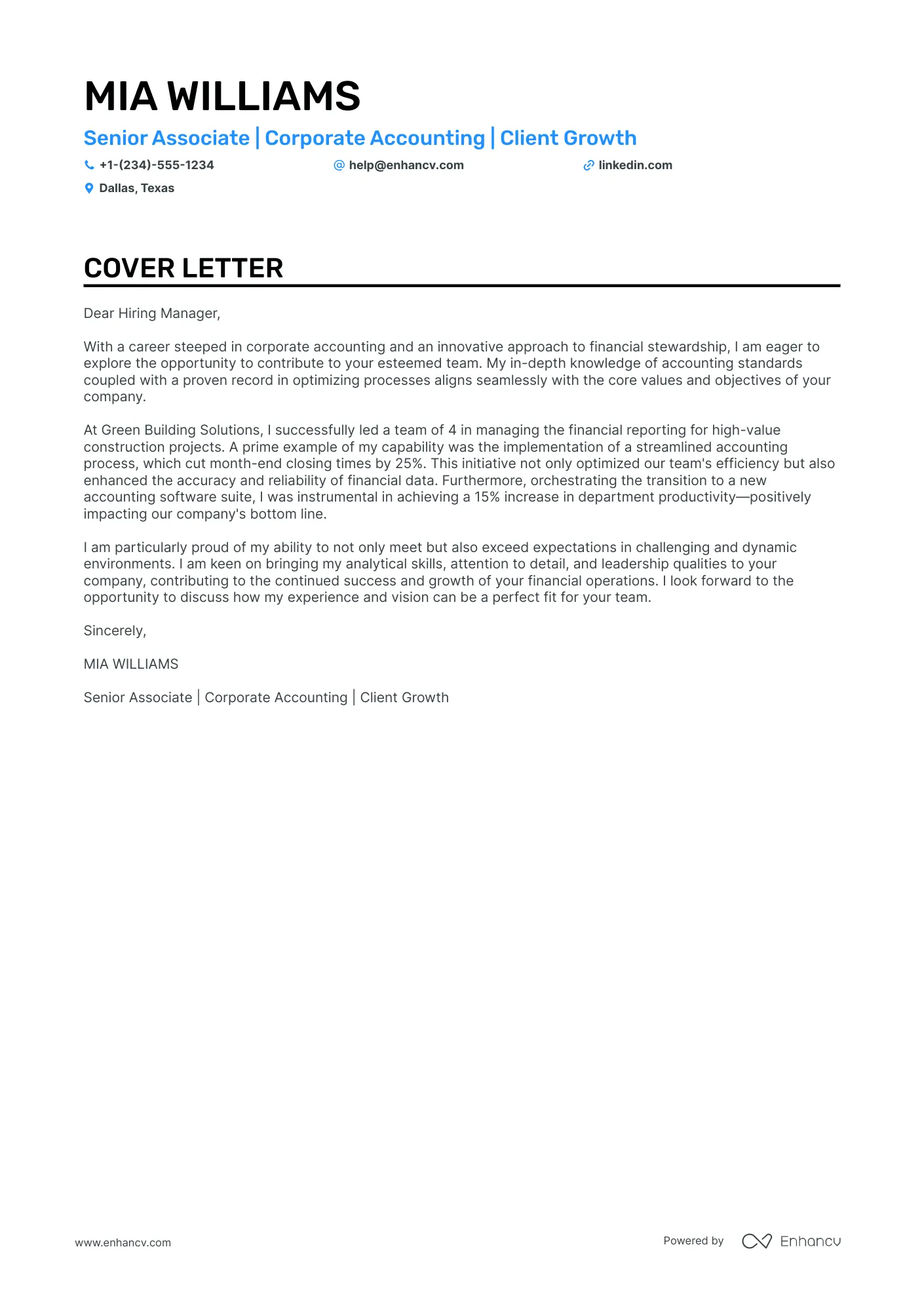
Carefully review the job description and identify the key requirements. Note the specific skills, qualifications, and experiences the firm is seeking. Use these keywords throughout your cover letter to ensure your application gets noticed. This is also the opportunity to match skills with requirements to ensure that your cover letter makes the most of your skills.
Matching Skills to Requirements
In your cover letter, directly address how your skills and experience meet the job requirements. Use specific examples to illustrate your capabilities. Don’t just list your skills; provide evidence of how you’ve successfully applied them in previous roles or projects. The goal is to convince the hiring manager that you can deliver results. It’s essential to create a detailed cover letter that reflects a deep understanding of the requirements.
Using Keywords Strategically
Incorporate relevant keywords from the job description into your cover letter. This helps your application pass through applicant tracking systems (ATS) and ensures it reaches the hiring manager. However, avoid keyword stuffing. Use the keywords naturally within the context of your writing. Ensure your cover letter flows well and remains easy to read. The goal is to optimize your letter, not to make it seem artificial.
Writing a Compelling Introduction
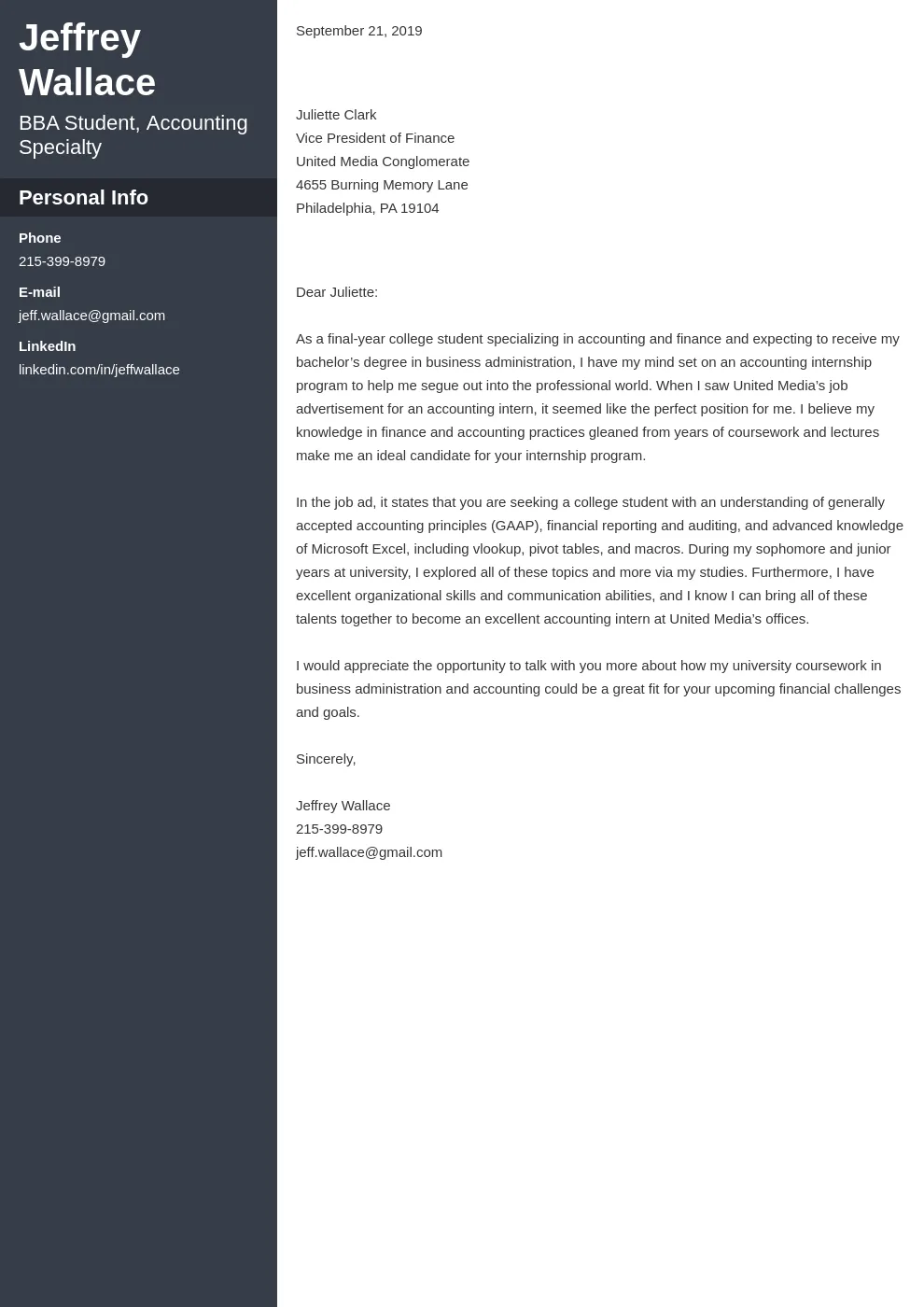
Your introduction sets the tone for your cover letter and determines whether the hiring manager continues reading. The introduction should immediately grab attention and clearly state your purpose. A compelling introduction showcases your enthusiasm and interest in the role and the company. A strong start can significantly increase the likelihood of getting your application read.
Grabbing Attention from the Start
Start with a hook. This could be a brief anecdote, a statement of your most relevant skill, or a specific accomplishment. Avoid generic openings like “I am writing to express my interest.” Instead, be direct, professional, and intriguing. Aim to capture the reader’s attention and make them want to learn more about you. Your opening should reflect the kind of work you do.
Stating Your Purpose Clearly
Clearly state the position you are applying for and how you found the job listing. Briefly mention why you are interested in the company and the role. Be specific and demonstrate your understanding of the company’s work. Clearly articulating your purpose helps the hiring manager quickly understand the objective of your letter. Include the job’s reference number if applicable.
Showcasing Achievements and Experience
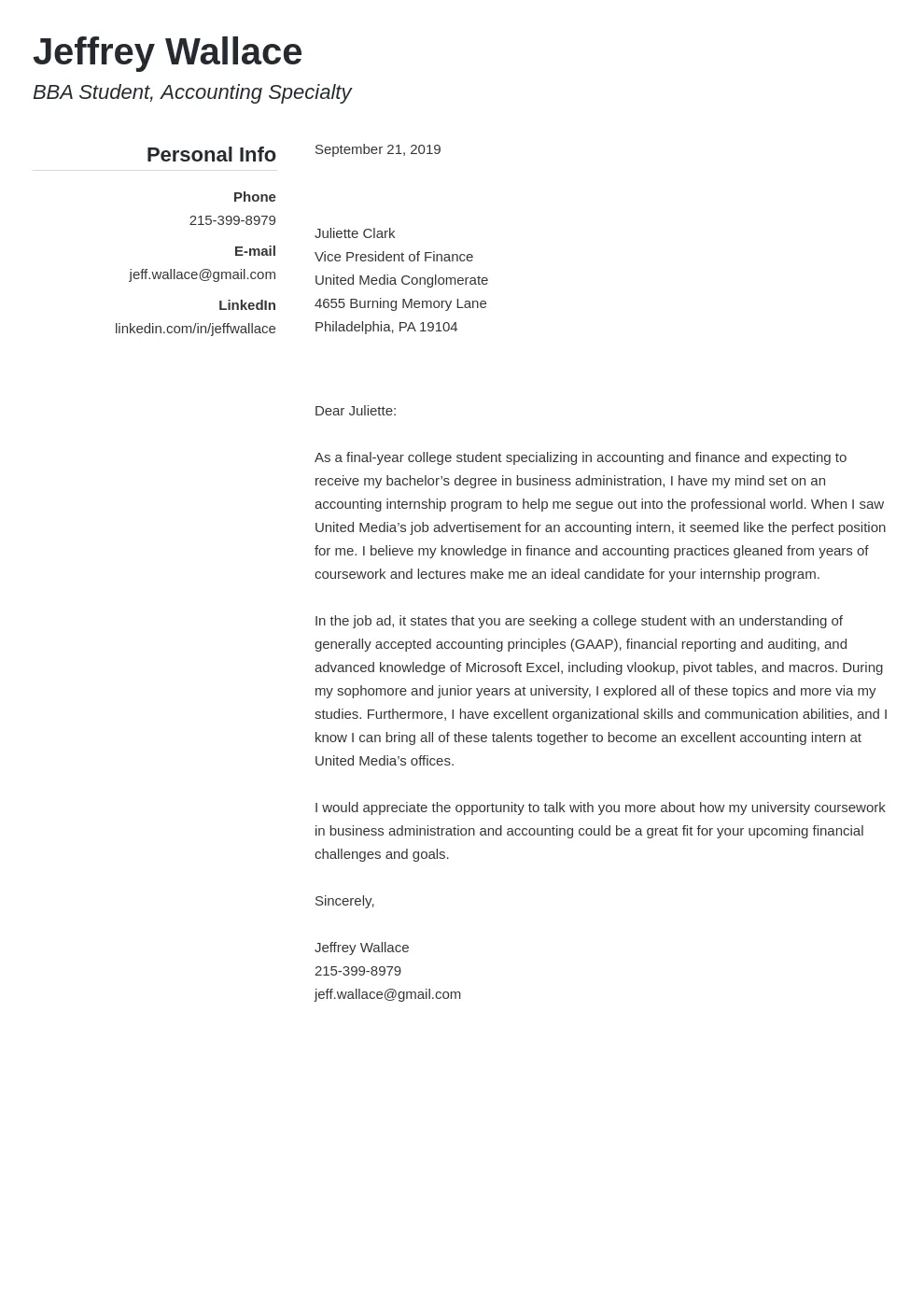
The body of your cover letter is where you highlight your accomplishments and experience. Provide specific examples that demonstrate your skills and qualifications. Focus on what you’ve achieved in previous roles, not just your responsibilities. Quantify your accomplishments whenever possible to show the impact you’ve made. Use the STAR method (Situation, Task, Action, Result) to structure your examples, providing context and demonstrating how you achieved positive outcomes.
Quantifying Your Accomplishments
Whenever possible, quantify your accomplishments. Instead of saying you improved efficiency, state that you “increased process efficiency by 15%.” Use numbers to demonstrate your impact and the value you bring to the table. This adds credibility to your claims and makes your accomplishments more concrete. If possible, use examples that show how you have saved money, improved accuracy, or increased productivity.
Providing Specific Examples
Use specific examples to illustrate your skills and experience. Describe the situation, the task you were given, the actions you took, and the results you achieved. For instance, instead of saying “Managed accounts payable,” describe how you “streamlined the accounts payable process, reducing processing time by 20% and improving vendor relations.” Specific examples provide context and help the hiring manager better understand your capabilities.
Formatting Your Accounting Cover Letter
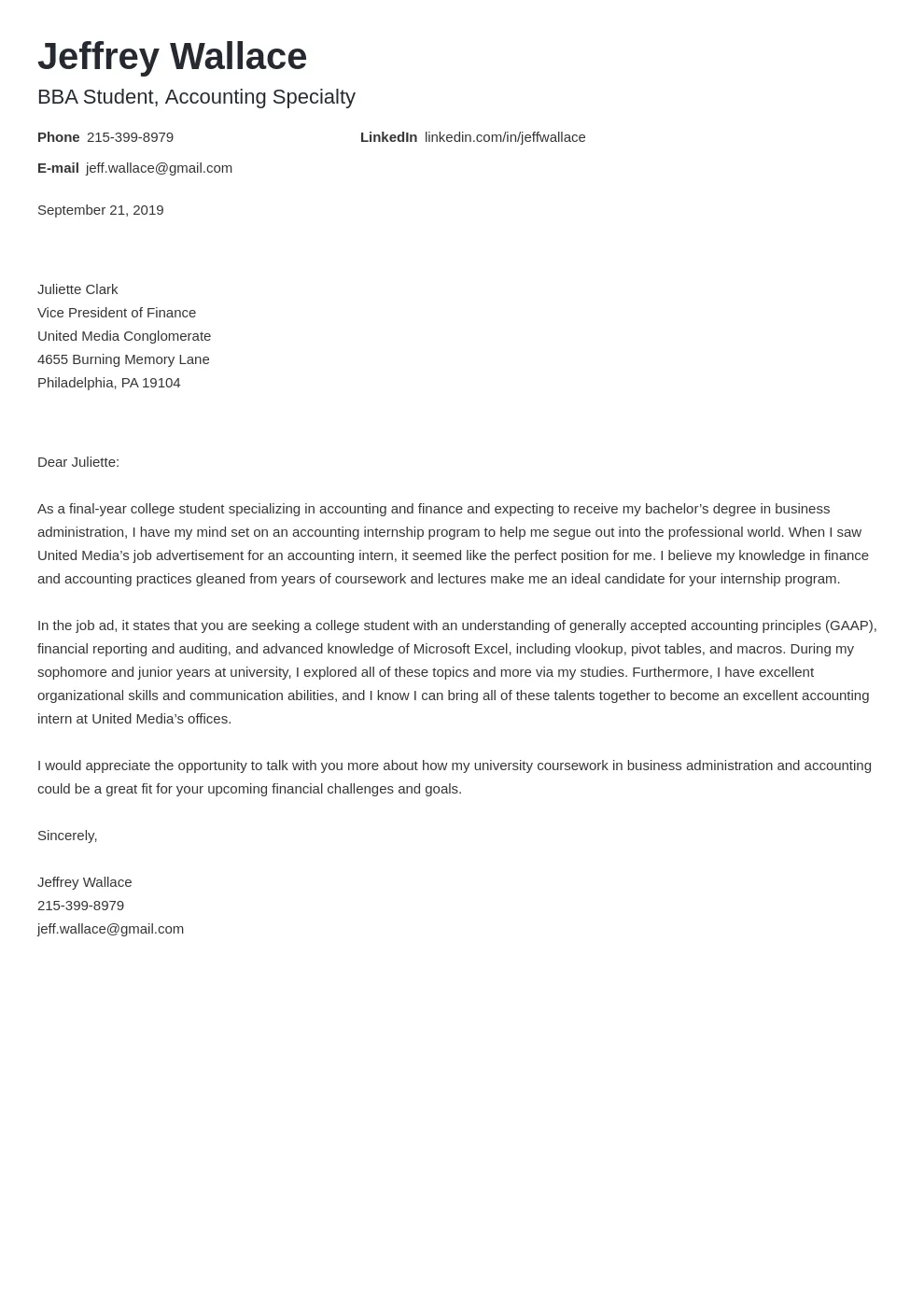
The formatting of your cover letter is as important as its content. A well-formatted cover letter is easy to read and conveys professionalism. Use a clean, readable font, maintain consistent spacing, and keep the letter concise. Ensure your formatting is aligned with the professional tone you are trying to achieve.
Choosing the Right Font and Style
Choose a professional font such as Times New Roman, Arial, or Calibri. Use a font size between 10 and 12 points for the body of the letter. Ensure your formatting is consistent throughout, including margins, spacing, and bullet points (if used). Use bolding and italics sparingly to highlight key points and enhance readability. The format should be appropriate for the company you’re applying for, so check their website.
Maintaining a Professional Tone
Maintain a professional tone throughout your cover letter. Use formal language, avoid slang, and keep your tone respectful and enthusiastic. Proofread carefully for any grammatical errors or typos. Your cover letter is a reflection of your attention to detail and professionalism. Always address the letter to the hiring manager by name if possible. Maintaining a professional tone is critical for a positive first impression.
Proofreading and Editing
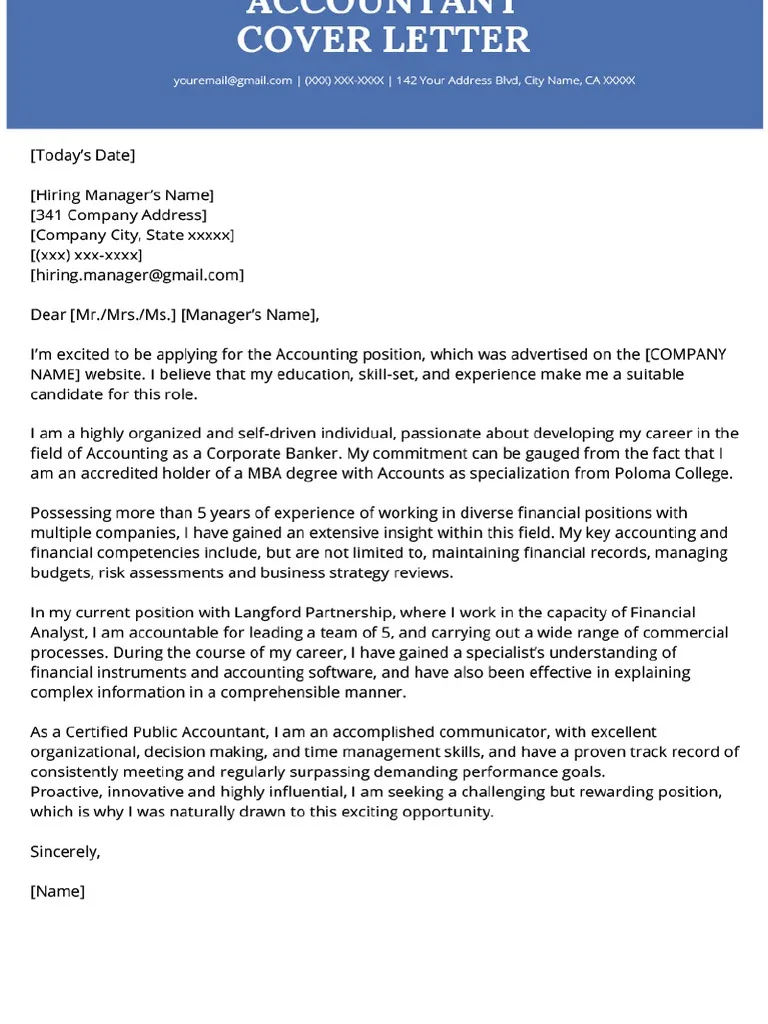
Before submitting your cover letter, proofread it carefully. Check for any grammatical errors, typos, or inconsistencies. It’s also helpful to have a friend or career counselor review your cover letter. Another set of eyes can often catch mistakes that you may miss. Attention to detail is crucial in the accounting field, and your cover letter should reflect that. Proofreading is a key step, and your cover letter should be error-free.
Closing Your Accounting Cover Letter
Your closing should leave a positive final impression and clearly state your next steps. Thank the hiring manager for their time and consideration, and reiterate your interest in the position. Make it easy for them to contact you and express your enthusiasm for the opportunity.
Expressing Gratitude
Thank the hiring manager for their time and consideration. Express your appreciation for the opportunity to apply. Be sincere and show that you value their time. Expressing gratitude is a sign of respect and professionalism. It can significantly improve the tone of your letter.
Including a Call to Action
End your cover letter with a call to action. State your availability for an interview and provide your contact information. Make it easy for the hiring manager to reach you. Express your eagerness to discuss your qualifications further. A clear call to action encourages the hiring manager to take the next step. Conclude by thanking the hiring manager for their time and consideration.
